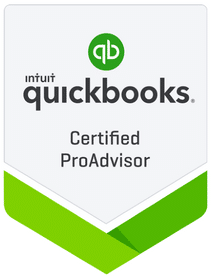- Patrick Roney
- (877) 503-8607
Follow Us :
Follow Us :
Proledge
July 24, 2024
QuickBooks has evolved over the years into an accounting tool used by most American companies. Is your firm active in a competitive industry, and has the majority of your budget been invested in improving the services and products offered to core demographics? Are your finances running low, and would you like to optimize your marketing approaches? Then, you probably instructed your bookkeeper to utilize QuickBooks. Does your CPA refuse to inspect your QuickBooks file? In this day and age, this should be a deal breaker.
Typically, reputable CPAs should have no problem analyzing your QuickBooks reports and checking to see if your financial transactions comply with widely used accounting standards. Who owns QuickBooks and how international companies use it is less relevant. The only thing that really matters is for your files to be correctly checked and adequately recorded. What QuickBooks CPA operations can you expect? For one thing, the specialist you call will verify the accuracy of your transaction entries, reconcile your bank statements, and review past journal entries for proper accuracy. In a nutshell, your CPA should work with us to double-check your financial transactional data.
Moreover, together with our company, your CPA should verify your balance sheets, ensure that your income statements are correctly cataloged for the recorded period, adjust entries in the event that errors are discovered, and perform a comprehensive review of your annual financial activities. QuickBooks CPA operations can be complex and time-consuming. Moreover, some CPAs might refuse to analyze your P&L and prepare QuickBooks tax filing operations. However, in this day and age, such tasks are mandatory for long-term business success. Does your CPA not want to get involved? Then, it would be best if you searched for someone else.

QuickBooks is the most popular accounting program in North America, commanding a market share of over 75%. Who owns QuickBooks? The Intuit Group, which, in addition to QuickBooks, also manages MailChimp, Mint, and TurboTax. QuickBooks is a comprehensive accounting and bookkeeping application that can be used to keep track of your income and expenses, manage your employee’s payroll, and track your offline inventory. The interface of the application is easy to understand. However, its functions are complex and are therefore suitable whether you are the owner of an SME or the manager of a growing international company.
QuickBooks is available in both a version for desktop computers and an online edition that can be accessed from anywhere, as long as you have a stable internet connection. Who owns QuickBooks? A better question would be how your CPA can take advantage of the application’s complex functions. Together with our help, your accountant will use QuickBooks to generate weekly, monthly, or quarterly reports that will include your balance sheets and cash flow statements. In addition, both your firm’s management and our firm can use QuickBooks to generate custom invoices that will be sent to your clients or collaborating vendors.
Our expert bookkeepers will use the Intuit software to track your inventory, manage the financial benefits of your employees, reconcile bank statements, and follow your bills and invoices. At the same time, your CPA can use QuickBooks to streamline invoice tracking, reduce the errors associated with manual financial recordkeeping, and facilitate the collaboration between your company’s management and the vendors you work with. QuickBooks can help your CPA create the necessary documentation for your tax returns and analyze your financial data in real-time, regardless of location.
You can contact us anytime if you have questions or encounter a problem with your bookkeeping program.
Your certified public accountant will use QuickBooks to generate custom financial reports that can be analyzed to create an economic development strategy where stability is the keyword. Our staff will provide quality remote QuickBooks training to your employees. At the same time, your CPA will use the application developed by Intuit to make adjustments to your financial entries and reconcile your bank statements. QuickBooks can be used to generate the recordkeeping documentation necessary for audits and is the best tool on the market to file fiscal returns with the help of TurboTax.
To ensure the smooth operations of your business, the CPA will need to handle QuickBooks tax fillings, act as a liaison between your collaborating banks and your firm’s management, conduct frequent analyses of your monetary statements, and use QuickBooks to create financial forecasts based on the historical data you have available. QuickBooks is a program through which your CPA can collaborate in real-time with your financial recordkeepers. Plus, it’s a tool that provides audit trails and can be utilized to assess the risks of your overall economic activities. Is it perfect? No. However, it is the most widely-used accounting software in North America, and it can be suitable for your business whether you are active in Houston, Dallas, or any other city in Texas.

Firstly, to successfully submit your annual tax reports and not attract the attention of the IRS, our bookkeepers will need your income statements. Also known as income and loss statements, this report will show your venture’s total expenditure and net profits and give you an idea about the health of your financial activities over a certain period. In other words, it is the document by which the IRS can calculate your taxable income and deductions. Then, we will need a balance sheet, which will provide information about your liabilities and equity. The balance sheet is necessary because it gives a clear picture of your venture’s net worth. In turn, net worth can affect your tax liabilities.
In addition to these two reports, our QuickBooks professionals will need a summary of all the accounts in your principal ledger and a sales tax eligibility report. However, the latter one is necessary only if you collect sales tax. Have you paid independent contractors throughout the tax year? Then, you will also need to prepare a 1099-NEC form. Moreover, we will require cash flow statements, a comprehensive report of your ongoing expenses, and a list of the depreciation taken on each of your assets. All in all, the documentation necessary for tax reports is complex. So, QuickBooks can be a tremendous help.
QuickBooks is an easy-to-use program even for beginners, making the process of sending financial data to your CPA relatively straightforward. Which steps should you follow? For one thing, you must create a copy of your QuickBooks file. Our specialists will open your account and select the company file you want to send to your CPA. Then, it depends on what QuickBooks version you are using. Are you utilizing the latest online version of QuickBooks? Then, we will click on the gear icon and select “Backup Company.” Afterward, from the action dropdown menu, we will choose “Copy.”
Are you using the Desktop version of the app? In that case, we will open the program as an admin, click on the “File” menu, and just like in the process for QuickBooks online, we will select “Create a copy.” Then, since we want to transfer this data to another computer, we will choose “Portable company file” and save it in a secure folder. Optionally, we can also create an “Accountant’s copy,” which will be explicitly shared with your CPA. Once we have a backup of your data, we will send it to your accountant either through file-sharing services, like Google Drive, or directly from QuickBooks by going to the “Client activities” submenu and clicking on “Send to Accountant.”


Fill out the form below to sign up to our Blog Newsletter and we’ll drop you a line when new articles come up.

For many business owners, taking care of their business is like taking care of a baby. If you want a successful business, you need to always pay attention to the

Bookkeeping and accounting are words that are used interchangeably by most people. It’s true that both of these are about the financial management of your business, but in different ways.

It’s that time again! The tax season is slowly but surely coming to an end and that means you can’t postpone it anymore. You’ve got to figure it out. We

There are lots of businesses that need to find efficient ways to keep track of their finances nowadays, and if you are a business owner, you have experienced this first-hand.

As we all know, automated means of running your business have started to become very popular recently due to all of the perks that it provides. This is not to

So you’re at that point in developing your small business where you’re looking into accounting solutions. If so, you might have started to wonder what’s the best bookkeeping software for
Bookkeepers.
Professional. Affordable.
ProLedge is a bookkeeping services firm.
Copyright © 2024 All rights reserved.